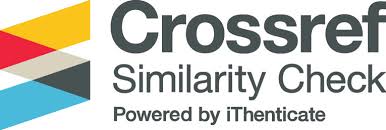The Influence of Solvent on Yield and Tannin Content in an Exctract of Guava Leaves (Psidium guajava L.)
Abstract
The leaves of guava (Psidium guajava L.) has been used and produced by industrial as an antidiarrheal. Active substances that act as an antidiarrheal in the leaves of guava are the tannins. Tannins are phenolic compounds that are soluble in water, ethanol or water-ethanol mixture. This study aims to determine the influence of solvent on yield and tannins content in the guava leaf extract and to determine the most optimal solvent for the manufacture of guava leaf extract with the maximum tannins content. The research was conducted by extracting the leaves of guava by maceration with ethanol 50%, 70%, 90%. Viscous extract obtained is then analyzed yield and tannins content. Quantitative analysis of tannins performed by permanganometry titration method. In this research shows that qualitatively the ethanol extract of guava leaves contain tannins. The results showed that solvent affect the yield and tannins content in the guava leaves extract. The yield of extract for 50%, 70%, 90% ethanolic extracts were 22,07%; 31,87%; 25,13%. Tannins content in the 50%, 70%, 90% ethanolic extract were 23,37%; 14,28%; 10,96%. The most optimal solvent for the manufacture of guava leaf extract with the highest tannin content was ethanol 50%.












